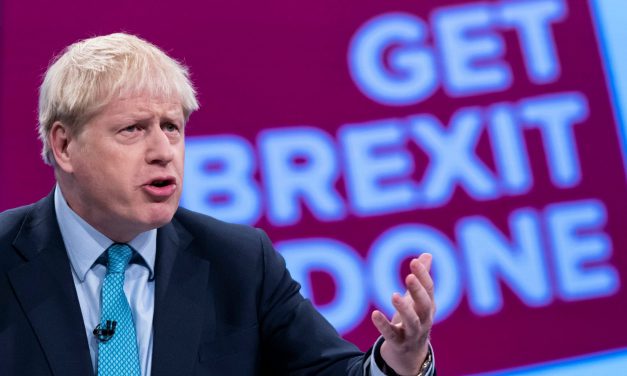On January 31, 2020 Britain formally withdrew from the European Union but will continue to maintain the main criteria for membership during the transition period, which is set to end late this year.
UK-EU relations are now in transition for a year and during this period the two sides have the opportunity to reach agreement on the post-Brexit relations. Recently, European Commission President Ursula von der Leyen, while expressing concern about the progress of the Brexit agreement, expressed concern over the advancement of Brexit agreement and said the possibility for the timely formation of the agreement is decreasing every day.
Simultaneously, Britain which cannot imagine a positive outlook for its relations with the European Union, seeks to reinforce its foothold in the world for the post-Brexit period. In this regard, it was recently announced that on a new economic partnership, Japan and Britain have reached a comprehensive agreement. The two sides intend to implement this agreement on January 1, 2021.
In fact, by leaving the European Union, Britain can enter into negotiations with all countries and set new rules and regulations for exports-imports and services; but the problem is that much of London’s policy is dependent on Washington and the next White House President.
Given that British Prime Minister Boris Johnson has neo-conservative leanings, which are close to Donald Trump’s way of thinking, he would think that by leaving the EU, he could gain a large market in the US; but so far he has failed to achieve this target and Trump has not provided such an environment for Johnson either. Therefore, it seems that the British Prime Minister is somewhat skeptical about his country’s withdrawal from the EU and his measure in withdrawing Britain from the EU has caused great losses to the London economy. Because, Britain has more than 30 billion dollars’ worth of trade transactions with European countries, and more than 3 million Britons are working in various EU member states who are forced to leave Europe a year after implementation of the Brexit Treaty. Thus, the return of this number of unemployed workers to the UK cause more economic problems for the country in the Corona crisis condition.
In this regard, Johnson tries not to lose his economic position in the European Union, especially in Ireland, and to continue this trend at least until the Brexit is not yet implemented. In the second stage, Johnson’s view is to non-European countries, including Japan, and the recent Tokyo-London agreement can be analyzed in this regard.
Although Britain has calculated that it may be able to improve its economic position in the Middle East and the Persian Gulf with the help of the United States in the post-Brexit period, the situation in these areas is not good enough for London to enable it to create a new economic atmosphere for itself.
Therefore, due to the major economic problems in Britain, Boris Johnson is currently facing severe bottlenecks.
Of course, the Neo-Conservative British party hopes that Donald Trump again will win and that they could be able to achieve some of their economic targets beside Washington, both in the US and in the sphere of influence of this country, especially the Persian Gulf sheikhdoms.
Given that the Persian Gulf sheikhdoms are almost economically saturated, this has become a bit difficult for London, but because the UAE has just entered into the phase of building nuclear power plants, Britain may be able to benefit from that country in this regard.
However, as mentioned before, these situations depend on whether Trump re-enters the White House or not.
In fact, if Trump does not win and the Democrats win, the Democrats’ relationship with the British Conservatives is usually not good. Therefore, if Joe Biden wins, Britain will not be able to achieve a suitable atmosphere in the US, despite the neoconservative thinking and policies in London.
Regarding the relations between Tehran and London after the country’s withdrawal from the European Union, it should be noted that Britain has so far adjusted its policies within the framework of Brussels policies towards Iran. Even if Britain still keeps pace with France and Germany, it is because Britain wants to get more concessions from the European Union within a year of full withdrawal from the EU, in line with some of Brussels policies. We are also witnessing some disagreements between Washington and London in this regard. This London approach indicates that Boris Johnson wants to maintain the EU space in any way possible and still holds a foothold in the EU after the end of the one-year term of Brexit. It seems very unlikely though because France and Germany do not have very good relations with Britain at the moment. As a result, London is now in an ambiguous position because it is both about to secede completely from the European Union and it is not clear what trend the US will adopt towards Britain after its separation.










0 Comments